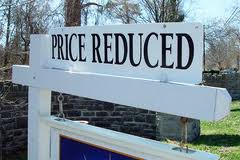As we welcome in the New Year, we also welcome more positive predictions for the housing market. After years of slow and steady recovery, in 2014 the U.S economy saw its best year since the 2008 recession. With the economy continuing to show improvement and income levels seeing growth, housing experts and economists have high hopes for 2015. After seeing so much improvement in 2014, the housing market seems poised for a real comeback in 2015. Prospects are looking bright for homeowners and prospective home buyers.
Here are a few trends and predictions the Greater Louisville Association of REALTORS expects to see play out in the coming year.
Lending standards will be loosened. In December 2014, Fannie Mae and Freddie Mac announced they will be offering 3 percent down payment mortgages, rather than 5 percent. Many potential buyers simply do not have the resources to save for a substantial down payment. This new program will allow first-time, creditworthy buyers, who would otherwise be kept out of the market, to purchase a home.
Mortgage rates will go up. With the economy improving, the Federal Reserve has indicated that they will be increasing the federal funds rate in 2015. This rate has a substantial impact on mortgage rates, which have been at historic lows for the past few years. This means that if you are considering buying a home or refinancing your mortgage, now is the time. The rates will likely increase as the year progresses.
Millennials will enter the market. As the economy continues to make gains and the job market improves, millennials (ages 25-34) will start forming households and entering the housing market. Millennials began to enter the market in 2014, but as the job market continues to improve and rent prices continue to rise millennial’s involvement in the housing market will likely increase. Combining that with opportunities for lower down payments, it’s a prime time for young people to enter the market.
Housing inventory will increase. Builders will begin to ramp up production in 2015. This increase in inventory should help improve choices for consumers, another potential draw for first-time buyers.
For more information about the 2015 housing market contact a Realtor®, whose expertise and local market insights can help make your home or investment dreams happen in the year ahead.






